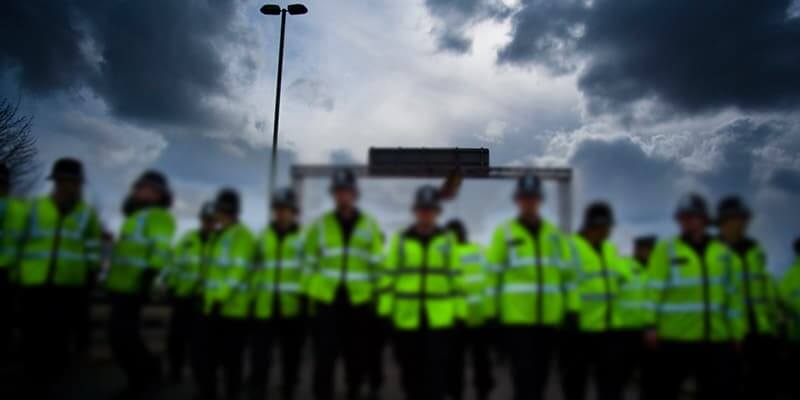Yesterday it was announced that Mark Rowley of the Commission for Countering Extremism (CCE) is leading a review ‘to examine whether existing legislation adequately deals with “hateful extremism”’. Through his former role as National Lead for CT Policing, Rowley has been a staunch advocate for PREVENT, and counter-extremism broadly, calling for a “whole society approach” to extremism. In a lecture for the right-wing thinktank Policy Exchange, he attacked Muslim orgs such as CAGE and MEND and drew absurd parallels between them and far-right orgs like the EDL. This latest move fronts PREVENT advocates’ attempts to shift the focus onto ‘conspiracy theories’ and shunt them under the banner of ‘extremism’, which we cover in our recent report ‘Exploiting a Pandemic’. Moves to tighten ‘hate crime’ laws will follow in this vein and seek to censor and disrupt the work of legitimate Muslim orgs campaigning against abuse of civil society and the public sector by counter-extremism. “Hateful Extremism” has been the term of choice for the CCE in its mission to redefine counter-extremism and secure buy-in from communities, and the major thrust of these efforts are rooted in their 2019 report ‘Challenging Hateful Extremism’. This position was popularised in the Greater Manchester Combined Authority’s 2018 report ‘A Shared Future’ as part of Greater Manchester’s move to secure wider buy-in for counter-extremism and further embed it within social life. We have previously noted the dangers of connecting ‘hate crime’ to ‘extremism’. As we said in our report CCE Exposed: “Framing incidents – whether politically or juridically – as individualised ‘hate crimes’ [breaks] this phenomenon down into discrete, depoliticised instances that are divorced from the wider political context.” Meanwhile in reference to the Shared Future report we stated that “In the context of “hate crime” the report ignores the role that the state has had in enabling a far-right resurgence, of which ‘hate crime’ spikes are a symptom, [it] instead uses this pretext as an opportunity to further entrench counter-extremism apparatus and divert attention away from government failings.” Perversely, in the case of Muslims, bridging ‘hate crime’ and counter-extremism means that Muslims facing the brunt of the far-right are expected to seek support from the very state institutions that criminalise aspects of Islam as “extremist”. Rowley's position indicates a shift to further expanding CE to become a ‘catch all’ for a variety of manifestations of deeper social ills. In doing so, the CCE and counter-extremism lobby seek to provide cover, so the government and security surveillance industry continue to profit while never having to actually own up to and rectify ongoing injustices.
https://twitter.com/UK_CAGE/status/1271032162364592128
Yesterday it was announced that Mark Rowley of the Commission for Countering Extremism (CCE) is <a href="https://www.theguardian.com/society/2020/jun/10/uk-extremists-exploiting-gaps-in-law-to-push-their-agenda">leading a review</a> ‘to examine whether existing legislation adequately deals with “hateful extremism”’.
Through his former role as National Lead for CT Policing, Rowley has been a staunch advocate for PREVENT, and counter-extremism broadly, calling for a “whole society approach” to extremism. In a <a href="https://www.cage.ngo/top-counter-terrorism-officer-uses-right-wing-platform-to-deliver-deeply-disturbing-speech">lecture for the right-wing</a> thinktank Policy Exchange, he attacked Muslim orgs such as CAGE and MEND and drew absurd parallels between them and far-right orgs like the EDL.
This latest move fronts PREVENT advocates’ attempts to shift the focus onto ‘conspiracy theories’ and shunt them under the banner of ‘extremism’, which we cover in our recent report ‘<a href="https://www.cage.ngo/exploiting-a-pandemic-the-security-industrys-race-to-infiltrate-public-health-cage-briefing-paper">Exploiting a Pandemic</a>’. Moves to tighten ‘hate crime’ laws will follow in this vein and seek to censor and disrupt the work of legitimate Muslim orgs campaigning against abuse of civil society and the public sector by counter-extremism.
“Hateful Extremism” has been the term of choice for the CCE in its mission to redefine counter-extremism and secure buy-in from communities, and the major thrust of these efforts are rooted <a href="https://www.cage.ngo/more-surveillance-and-disruption-what-to-expect-from-the-cce">in their 2019 report</a> ‘Challenging Hateful Extremism’.
This position was popularised in the Greater Manchester Combined Authority’s 2018 report <a href="https://www.cage.ngo/a-shared-future-report-ignores-state-failures-and-panders-to-counter-terrorism-sector">‘A Shared Future</a>’ as part of Greater Manchester’s move to secure wider buy-in for counter-extremism and further embed it within social life.
We have <a href="https://www.cage.ngo/a-shared-future-report-ignores-state-failures-and-panders-to-counter-terrorism-sector">previously noted</a> the dangers of connecting ‘hate crime’ to ‘extremism’.
As we said <a href="https://www.cage.ngo/cce-exposed#hatecrime">in our report CCE Exposed</a>: “Framing incidents – whether politically or juridically – as individualised ‘hate crimes’ [breaks] this phenomenon down into discrete, depoliticised instances that are divorced from the wider political context.”
Meanwhile in reference to the Shared Future report we stated that
“In the context of “hate crime” the report ignores the role that the state has had in enabling a far-right resurgence, of which ‘hate crime’ spikes are a symptom, [it] instead uses this pretext as an opportunity to further entrench counter-extremism apparatus and divert attention away from government failings.”
Perversely, in the case of Muslims, bridging ‘hate crime’ and counter-extremism means that Muslims facing the brunt of the far-right are expected to seek support from the very state institutions that criminalise aspects of Islam as “extremist”. Rowley's position indicates a shift to further expanding CE to become a ‘catch all’ for a variety of manifestations of deeper social ills.
In doing so, the CCE and counter-extremism lobby seek to provide cover, so the government and security surveillance industry continue to profit while never having to actually own up to and rectify ongoing injustices.










